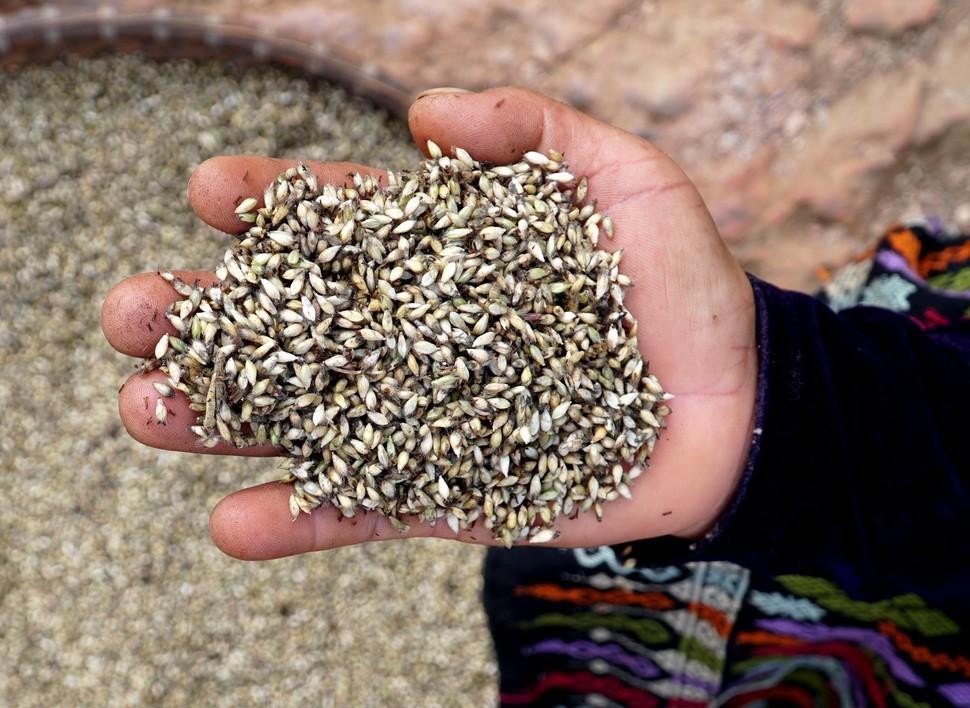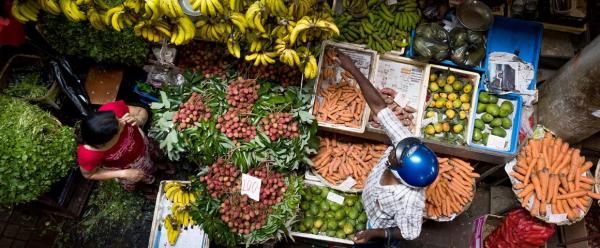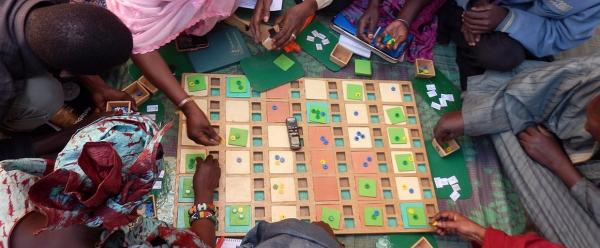Just out 11 March 2024
- Home
- CIRAD news
- News
- Food reserves
Food security: food reserves are again acknowledged to play a major role

"The history of food reserves has been peppered with both failures and great successes", says Franck Galtier, an economist with CIRAD who coordinated a vast study on the subject commissioned by the European Commission (EC). The study analysed the conditions for the success of such tools, which the international community had abandoned since the 1980s, but which are currently the object of renewed interest (see box). To conduct it, Franck Galtier called upon some of the world's top experts. They reviewed the theoretical and empirical literature on the topic and carried out ten case studies in Africa, Latin America and Asia. The result was a 100-page synthesis plus reports on the ten case studies and an information note on the interest of the EC Directorate General for International Development and Cooperation (DG-DEVCO) in food reserves.
Performance depends on the context
"This is the first study of food reserves that looks at every aspect of the problem", Franck Galtier points out. It explores the various impact pathways these tools may trigger to boost food security: managing crises, tackling chronic malnutrition, and using procurement to boost food production or alleviate rural poverty. In their report, the experts look at the different ways of using reserves (sales, subsidized sales, free distribution) and present the necessary building blocks for good governance. Lastly, they analyse the impact of reserves not only in the country making use of them, but also on other countries; national reserves tend to affect global market stability, hence global food security. The report shows that reserves can be a very useful tool in some situations, notably when import times are long or unpredictable (landlocked or particularly large countries). It has thus served to rehabilitate food reserves.
Food reserves are particularly appropriate for the Sahel
For Franck Galtier, the characteristics of the Sahel make food reserves a particularly useful tool. On the one hand, the climate is such that cereals can easily be stored for three years. Furthermore, the zone is faced with frequent food crises and chronic food insecurity. There are several reasons for the Sahel's nutritional vulnerability:
- climate hazards make for very unstable crop yields,
- the cereals consumed by the poorest households (millet and sorghum) are not available on global markets, and imported cereals (rice and wheat) are much more expensive,
- cereals provide more than 3/4 of the calories consumed and between 20 and 45% of household income. Any sharp price increases are rapidly catastrophic for the region's poorest people,
- lastly, the Sahel includes countries with some of the lowest human development indexes in the world.
The Sahel countries already have national and local food reserves, and ECOWAS recently set up a regional reserve, which began distributing food in 2017, during the famine in northeastern Nigeria. The fact that this reserve is regional is entirely appropriate, since food crises generally affect several countries in the region at once, like the 2005 and 2012 crises that affected all the Sahel countries. This report will fuel the debate at DG-DEVCO at a time of reflection on a new project to support this regional food reserve.
Renewed interest
"Europe needed arguments to help it decide on the very specific tools that are food reserves", Franck Galtier explains. They were frequently used up until the 1980s, but subsequently abandoned by the international community. There is now renewed interest in such instruments, following the food crises of the 2000s, notably the one that hit global markets in 2008. As a result, the European Commission is increasingly being asked to support food reserves, via its delegations in developing countries. Moreover, driven by India and 32 other emerging or developing countries, talks are under way at the World Trade Organization with a view to giving countries greater flexibility to build food reserves.


























